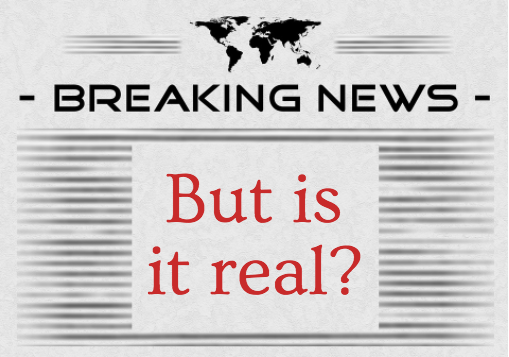EDITORIAL: Fake news: stay alert, questioning

The proliferation of fake news has created confusion and distrust between the people and the press.
April 5, 2017
If you have read any news lately, you likely have seen “Donald Trump” and “Twitter” used frequently in the same sentence. The media has historically had a large presence in politics; from the Boston Tea Party to Watergate and now, to the presidency.
Since the election of President Donald Trump, media involvement in politics has increased to include social media outlets like Facebook and Twitter. Trump has managed to use these same outlets to his benefit to remove trust in the press, regardless of the validity of the news being shared.
That being said, fake news is legitimate, and it’s important to be conscious users and determine when facts or fiction are being distributed. But first, what exactly is fake news?
Ranging from fabricated tales to satirical articles, fake news has varying degrees of legitimacy. These shades of gray have only heightened the confusion surrounding the credibility of every news source.
Types of fake news may include misleading content, incorrect information, intentional use of false information, clickbait that doesn’t match the news content itself, and even complete fabrication of a fact for political or economic gains. And unless the entirety of a piece of content is fabricated, to misinform is not always the intent.
If news is false in any way, it could be a simple miscommunication between a headline and an article, maybe the journalist misunderstood parts of a story, or perhaps – as in a satirical piece – blatant misinformation used to add humor to a true story.
While misunderstanding the intent of a news story or unintentional misinformation may occur, being moderately wary of where news is coming from is not always a bad thing.
It is crucial to stay alert and questioning when facts and fiction are equally accessible. Use a variety of sources to stay up to date on what is happening; and that means sources that typically sway conservative and typically sway liberal.
By getting the best of both parties, it becomes easier to see what is truth and what could possibly be opinion, because let’s face it, no one is unbiased. Every publication or think tank or individual has their own agenda they want to impress on others, intentional or not.
While questioning the legitimacy of a story is important, questioning the legitimacy of prominent publications may be dangerous. And while speculation of news is important to understanding the truth, being doubtful can also delegitimize valuable sources of information; to remove trust from publications like the New York Times, Fox 25, or CNN, is to also remove power from the people.
After all, writing and the dissemination of facts and ideas are all ways through which people exercise their freedom of speech. And even though news may be worded in such a way that praises one political view over another, that doesn’t revoke the validity of the facts that are a part of it.
The unsigned editorial reflects the views of The Editorial Board.








